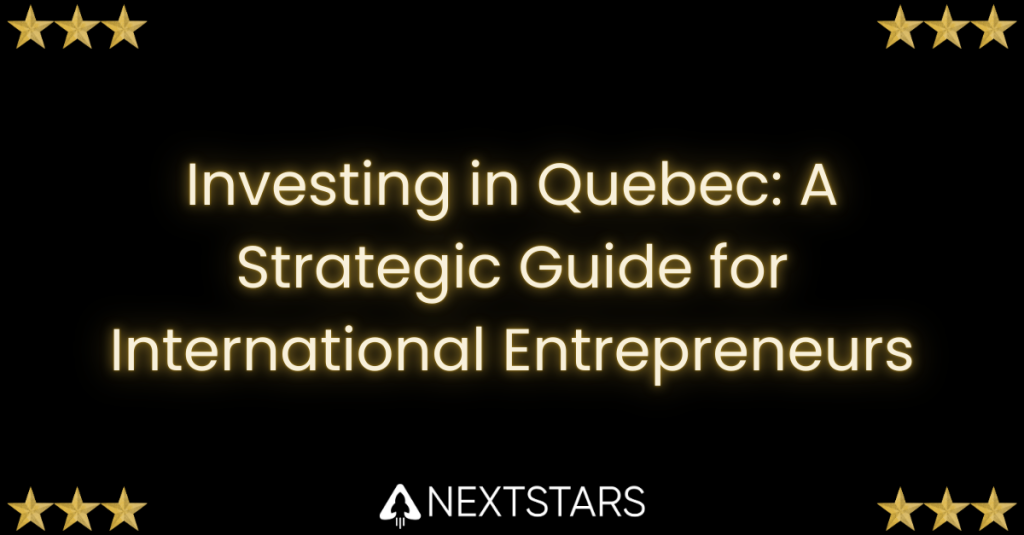Iraq: The Reconstruction Tech Opportunity
Iraq’s startup ecosystem represents one of the most compelling yet complex opportunities in global tech—a nation rebuilding from conflict with unprecedented needs and surprising innovation emerging. Despite security challenges and infrastructure gaps, Iraqi startups raised an estimated $30-40 million in 2024, primarily through local investors and diaspora networks, marking the beginning of a digital reconstruction. With 43 million people, 75% mobile penetration, and one of the world’s youngest populations (60% under 25), Iraq combines massive reconstruction needs with a generation eager for change. The ecosystem’s emergence—evidenced by success stories like Miswag (Iraq’s Amazon), Zain Cash (8 million users), and Lezzoo (delivery across multiple cities)—demonstrates that entrepreneurship thrives even in the most challenging environments. Iraq’s combination of oil wealth seeking diversification, $100+ billion reconstruction opportunity, and strategic location at the crossroads of the Middle East positions it as a frontier market where brave entrepreneurs can build transformative businesses while literally rebuilding a nation.
A Strategic Position: Iraq’s Fundamental Realities
Iraq possesses unique characteristics that create both challenges and extraordinary opportunities for tech innovation.
Market Scale and Demographics
Iraq’s population dynamics create compelling conditions for digital transformation:
Population fundamentals:
- 43 million population (4th largest in Arab world)
- 60% under 25 years old (youth bulge)
- 75% mobile penetration (32 million users)
- 19 million internet users (growing rapidly)
- 70% urbanization concentrated in major cities
Economic indicators:
- $250+ billion GDP (oil-dependent but sizeable)
- $100+ billion reconstruction needs
- Growing consumer class in stable regions
- Cash economy transitioning to digital
- Import-dependent creating opportunities
Regional Dynamics
Iraq’s internal diversity creates multiple markets:
Geographic markets:
- Baghdad: 8 million, commercial center
- Basra: 1.5 million, oil hub, port access
- Erbil (Kurdistan): 2 million, most stable, business-friendly
- Mosul: 2 million, rebuilding post-ISIS
- Najaf/Karbala: Religious tourism (20M visitors/year)
Autonomous Kurdistan Region:
- More stable investment environment
- Separate visa regime
- Direct international flights
- Higher purchasing power
- Gateway for Iraq market
Human Capital Assets
Despite brain drain, Iraq maintains significant human potential:
Educational foundation:
- 200,000+ university students enrolled
- 30,000 engineering graduates annually
- Strong mathematics tradition
- Technical skills from oil sector
- Multilingual capabilities (Arabic, Kurdish, English)
Diaspora resources:
- 2-3 million Iraqis abroad
- Significant presence in Jordan, Turkey, UAE
- 500,000+ in Europe and North America
- Technical expertise in diaspora
- $10+ billion annual remittances
Reconstruction Imperative
Post-conflict rebuilding creates unique market conditions:
Infrastructure needs:
- $88 billion infrastructure gap (World Bank)
- Housing shortage of 3 million units
- Healthcare system rebuilding
- Education infrastructure needs
- Utilities modernization required
Digital leapfrog opportunity:
- Skip legacy infrastructure
- Mobile-first solutions
- Cloud-native approaches
- Digital government potential
- Modern systems from scratch
Government Support and Policy Framework
Iraq’s government increasingly recognizes technology as essential for reconstruction and diversification.
Iraq Vision 2030
National development strategy emphasizing digital transformation:
Digital Iraq Initiative:
- Target 50% internet penetration by 2030
- Create 500,000 jobs in ICT sector
- Achieve $10 billion digital economy
- Digitize government services
- Build innovation infrastructure
Regulatory Developments
Recent policy improvements:
Banking and Finance:
- Central Bank of Iraq licensing fintechs
- Mobile money regulations enacted
- QR payment standards adopted
- International card acceptance growing
- Anti-money laundering frameworks
Business Environment:
- Company registration streamlining (Kurdistan faster)
- Foreign ownership permitted in many sectors
- Investment law guarantees
- Tax holidays for tech companies
- Free zones with benefits
Government Programs
Ministry of Communications initiatives:
- National Internet project expanding fiber
- Innovation labs in universities
- Digital skills training programs
- E-government portal development
- Startup competitions with prizes
Kurdistan Regional Government (KRG):
- More progressive startup policies
- Investment board actively supporting tech
- International partnerships
- Easier business registration
- Direct funding programs
Infrastructure Development
Physical and digital infrastructure improving:
Technology Parks:
- Baghdad Technology Park: Under development
- Erbil Tech Park: Operational
- Basra Innovation Hub: Planned
- University incubators emerging
- Co-working spaces multiplying
Connectivity improvements:
- Fiber optic expansion ongoing
- 4G coverage expanding
- 5G trials beginning
- International bandwidth increasing
- Data costs decreasing
The Funding Landscape: Early Stage Reality
Funding Overview
Iraq’s investment ecosystem is nascent but showing signs of life:
2024 estimated metrics:
- $30-40 million total funding
- 80% local capital sources
- 20-30 deals completed
- Average deal size $100K-500K
- Seed and pre-seed dominant
Active Investors
Local investment sources:
- Iraq Tech Ventures: New $10M fund
- Rawaj Fund: Impact investment focus
- Orange Corners: Dutch-backed program
- Angel investors: Wealthy individuals entering
- Family offices: Beginning to explore tech
Regional investors showing interest:
- Flat6Labs: Considering Iraq entry
- Oasis500: Supporting Iraqi startups
- Faith Capital: Monitoring opportunities
- MEVP: Early discussions
- Saudi/UAE funds: Exploring carefully
Alternative funding:
- UNDP programs: Supporting startups
- World Bank initiatives: SME funding
- USAID programs: Entrepreneurship support
- EU funding: Development programs
- Crowdfunding: Informal but active
Sector Distribution
Fintech and Payments (35%):
- Digital wallets proliferating
- Money transfer solutions
- QR payment adoption
- Merchant services
- Islamic finance innovation
E-commerce and Marketplaces (30%):
- Local Amazon alternatives
- B2B procurement platforms
- Fashion and lifestyle
- Electronics marketplaces
- Cross-border trade
Delivery and Logistics (20%):
- Food delivery wars
- Last-mile solutions
- Inter-city logistics
- Medical delivery
- Grocery platforms
Services and Other (15%):
- EdTech platforms
- HealthTech emerging
- Real estate platforms
- Transportation apps
- Content creation
Success Stories: Iraqi Innovation
Miswag: Iraq’s E-commerce Leader
Founded in 2016, Miswag has become Iraq’s answer to Amazon:
Scale achieved:
- 500,000+ app downloads
- 100,000+ active users
- 10,000+ products listed
- Operating in 5+ cities
- 200+ employees
Key innovations:
- Cash on delivery perfected
- Logistics network built
- Customer service localized
- Trust systems developed
- Payment options expanded
Zain Cash: Digital Payment Revolution
Zain Cash leads Iraq’s digital payment transformation:
Market dominance:
- 8 million registered users
- $5+ billion annual transaction volume
- 50,000+ merchants accepting
- 300+ locations for cash in/out
- Government salary distribution
Ecosystem impact:
- Enabling e-commerce
- Financial inclusion driver
- Reducing cash dependency
- Cross-border remittances
- Bill payment digitization
Lezzoo: Delivery Innovation
Lezzoo proves local execution beats international brands:
Rapid growth:
- 300,000+ users
- Operating in Baghdad, Basra, Erbil
- 5,000+ drivers
- 2,000+ restaurants
- Expanding to groceries, pharmacy
Kurdistan Success Stories
FastPay:
- Digital wallet leader in Kurdistan
- 1 million+ users
- Complete payment ecosystem
- Regional expansion planned
Loco:
- Super app for Kurdistan
- Ride-hailing, delivery, services
- 200,000+ downloads
- Multi-vertical platform
Other Notable Players
Alsaree3:
- Logistics and delivery
- Inter-city connections
- B2B focus
- Solving infrastructure gaps
Orisdi:
- Healthcare platform
- Doctor appointments
- Telemedicine services
- Pharmacy integration
Eduba:
- EdTech platform
- Online courses
- Skill development
- Youth focus
Challenges: Operating in Complexity
Security and Stability
Ongoing concerns:
- Regional security variations
- Political instability impacts
- Corruption challenges
- Rule of law gaps
- Investment deterrence
Mitigation strategies:
- Focus on stable regions first
- Kurdistan as entry point
- Local partnerships essential
- Security protocols developed
- Insurance mechanisms
Infrastructure Gaps
Critical limitations:
- Electricity unreliable (4-12 hours/day many areas)
- Internet connectivity inconsistent
- Banking system underdeveloped
- Logistics networks fragmented
- Road infrastructure damaged
Workaround solutions:
- Generator/solar backup
- Multiple ISP redundancy
- Cash-based models
- Building own logistics
- Creative distribution
Financial System Challenges
Banking limitations:
- 15% banked population
- International transactions difficult
- Credit cards rare (2-3%)
- ATM network limited
- Trust in banks low
Progress indicators:
- Mobile money growing
- QR payments spreading
- Islamic banking expanding
- Fintech solutions emerging
- Government digitization push
Talent and Brain Drain
Human capital challenges:
- Continued emigration
- Limited tech skills locally
- Management experience gaps
- English proficiency varies
- Remote work culture nascent
Positive developments:
- Diaspora returning slowly
- Universities adapting curricula
- Bootcamps launching
- Online learning adoption
- Youth eagerness to learn
Regulatory Uncertainty
Business environment issues:
- Bureaucracy heavy
- Regulations unclear
- Multiple authorities
- Corruption concerns
- Contract enforcement weak
The Support Ecosystem: Building from Scratch
Incubators and Accelerators
The Station (Baghdad/Erbil):
- Leading innovation hub
- 200+ startups supported
- Co-working spaces
- Mentorship programs
- International partnerships
Five One Labs (Kurdistan):
- 100+ startups accelerated
- $10,000 seed funding
- 3-month programs
- Strong alumni network
- Female founder focus (40%)
Iraqi Innovators (Baghdad):
- Youth entrepreneurship
- 500+ entrepreneurs trained
- Demo days regular
- Investor connections
- Skills workshops
Orange Corners Iraq:
- Dutch government funded
- 6-month incubation
- €5,000 prizes
- Business training
- Network access
University Programs
American University of Iraq (Sulaimani):
- Entrepreneurship center
- Startup competitions
- International standards
- English instruction
- Diaspora connections
University of Baghdad:
- Technology incubator
- Engineering focus
- Research commercialization
- Student clubs active
Other institutions:
- Mustansiriyah University: ICT programs
- Basra University: Oil tech innovation
- Mosul University: Rebuilding with tech focus
- Private universities increasingly active
Support Organizations
Iraqi Federation of Industries:
- Digital transformation support
- SME development
- Policy advocacy
- International partnerships
- Business development
- Investment facilitation
- Market research
- Ecosystem building
- Success amplification
Tech communities:
- Iraq Tech Group: 10,000+ members
- Baghdad Startup Weekend: Regular events
- Women in Tech Iraq: Growing movement
- Developer communities: Multiple active groups
International Support
UNDP Iraq:
- $50 million entrepreneurship programs
- Accelerator funding
- Capacity building
- Infrastructure support
- $100 million MSME development
- Digital economy studies
- Policy recommendations
- Technical assistance
USAID:
- Private sector development
- Youth entrepreneurship
- Women’s economic empowerment
- Access to finance
Looking Ahead: Reconstruction Through Innovation
Current Trajectory
Iraq’s startup ecosystem in 2025 shows emerging potential:
Positive indicators:
- Funding increasing steadily
- Success stories multiplying
- Youth embracing entrepreneurship
- Government recognizing importance
- Infrastructure slowly improving
Persistent challenges:
- Security concerns remain
- Infrastructure gaps massive
- Financial system weak
- Brain drain continuing
- Regulatory uncertainty
Vision 2030 Potential
Conservative projections:
- $200 million annual startup funding
- 1,000+ active startups
- 5 companies valued $50M+
- 50,000 jobs in tech
- $5 billion digital economy
Optimistic scenario (if stability improves):
- $500 million funding possible
- Regional hub for reconstruction tech
- Diaspora return acceleration
- International investment influx
- Unicorn potential realistic
Strategic Imperatives
For government:
- Security and stability: Foundation for everything
- Infrastructure investment: Power, internet priority
- Financial inclusion: Digital payment infrastructure
- Education reform: Tech skills focus
- Diaspora engagement: Systematic programs
For investors:
- Pioneer mindset: First-mover advantages
- Local partnerships: Essential for navigation
- Patient capital: Long-term view required
- Risk mitigation: Diversification crucial
- Impact focus: Reconstruction alignment
For entrepreneurs:
- Solve real problems: Infrastructure gaps everywhere
- Cash-first models: Adapt to reality
- Trust building: Critical for success
- Regional thinking: Kurdistan + federal Iraq
- Diaspora leverage: Global connections
For development organizations:
- Capacity building: Skills development priority
- Infrastructure support: Enable digital economy
- Investment facilitation: Risk mitigation tools
- Policy advocacy: Reform acceleration
- Success amplification: Showcase achievements
Unique Opportunities
Reconstruction technology:
- Construction tech massive need
- Urban planning platforms
- Infrastructure management
- Government digitization
- Service delivery innovation
Financial inclusion:
- 85% unbanked population
- Mobile money potential huge
- SME financing gaps
- Insurance markets nascent
- Islamic finance opportunity
Essential services:
- Healthcare digitization
- Education technology
- Utilities management
- Transportation solutions
- Agriculture modernization
Regional advantages:
- Central location in Middle East
- Oil wealth for funding
- Young population eager
- Rebuild with latest tech
- Religious tourism potential (20M visitors)
The Path Forward
Iraq represents the ultimate frontier market opportunity:
Why now:
- Stability improving gradually
- Youth demanding change
- Technology leapfrogging possible
- Competition minimal
- Needs massive
Why Iraq matters:
- 43 million population scale
- $100B+ reconstruction opportunity
- Strategic Middle East location
- Oil wealth seeking diversification
- Young population dividend
For brave entrepreneurs and patient investors, Iraq offers:
- First-mover advantages in every sector
- Minimal competition currently
- Massive real problems to solve
- Government support growing
- Impact opportunity profound
The entrepreneurs building in Iraq today aren’t just creating companies—they’re literally rebuilding a nation through technology. Every startup launched, every job created, every problem solved contributes to Iraq’s recovery and modernization.
The key insight: Iraq’s reconstruction will be digital or it won’t succeed. The country cannot rebuild with 20th-century solutions. This creates a unique moment where technology entrepreneurs can build transformative businesses while contributing to one of the most important reconstruction efforts of our time.
Iraq’s startup ecosystem in 2025 stands at the beginning of something significant. For those with courage, patience, and vision, the opportunity to build the digital foundation of a nation’s recovery is both a business opportunity and a historical moment. Successful startups also should consider relocating to Canada.
Read our blog about Algeria’s startup ecosystem next.
This article provides an analysis of Iraq’s startup ecosystem as of 2025, examining how entrepreneurship and technology can drive reconstruction and economic transformation in one of the world’s most complex but opportunity-rich markets.





